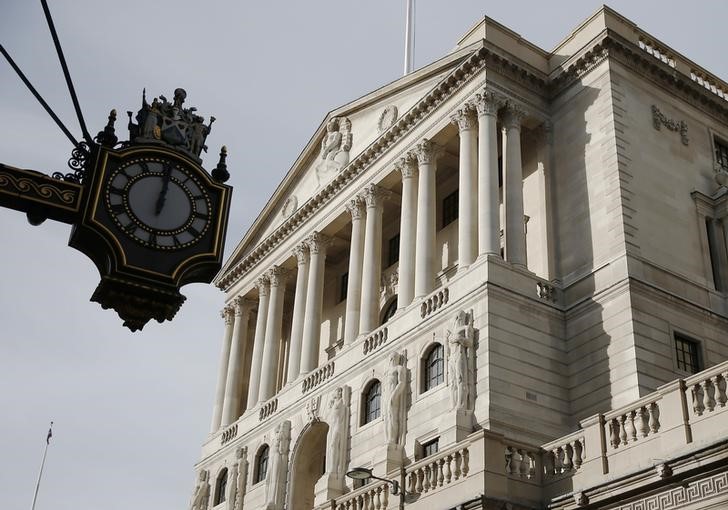(Bloomberg) -- The Bank of England’s forecasts are losing authority with the public as well as markets, according to Bank of America Merrill Lynch (NYSE:BAC).
Almost half of the U.K. public have no idea where inflation will be in the next five years, a record high. Investors are betting that the next BOE move will be a rate cut even though the bank’s forecasts imply a need for hikes over the next few years.
Households tend to base their expectations of inflation on the current rate, also taking into account the prices of everyday products such as food and gasoline. Until 2016, this view of inflation has largely coincided with BOE forecasts. After the Brexit referendum however, the two views of the economy began to diverge, as the public expected inflation to rise, while BOE predicted it would fall, economists led by Robert Wood wrote in a note dated July 22.
“We’d rather have expectations a little above than below target in a world of limited monetary policy ammunition,” the economists wrote. “But the more expectations deanchor, the less room the BOE will have to fight the next recession.”
Since the 2016 referendum, the BOE has based its inflation forecasts on the 100% probability of a Brexit deal. The markets, on the other hand, include a significant possibility of a no-deal Brexit, leading to disparate outlooks for borrowing costs.
The BOE has forecast inflation will rise above its 2% target for two years, only to keep rates low, raising twice in the last sixteen quarters. BofA said that this has led to particularly difficult communication issues for the BOE, and could lead to more volatile monetary policy.
